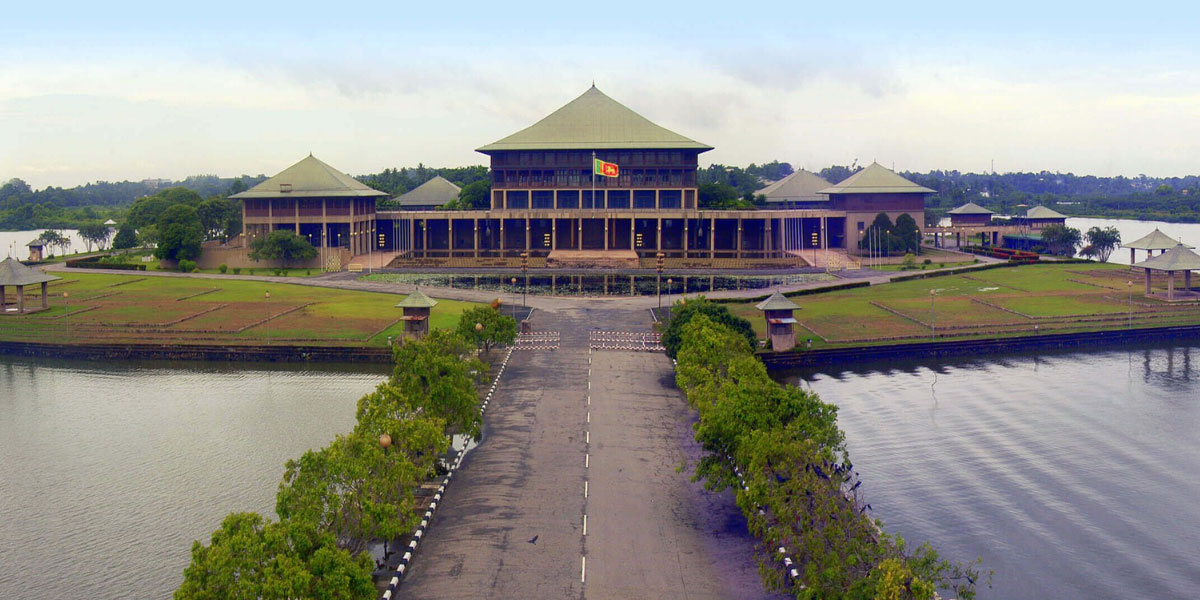Anura Kumara Dissanayake, Sri Lankan President and Finance Minister, presented the 2025 budget to the Parliament on 17 February 2025, introducing various tax and legal reforms to advance the new government’s policy agenda. These reforms are key to Sri Lanka’s obligations under the USD 3 billion IMF bailout package.
Sri Lanka targets a 6.7% budget deficit of GDP in 2025, slightly down from 6.8% in 2024. The deficit is expected to rise to LKR 2,200 billion from LKR 2,040 billion in 2024.
The government aims to transform its crisis-hit economy and resume debt repayments by 2028 with the new tax reforms presented in the 2025 budget.
President Dissanayake said this budget is aimed at the long-term growth of the country’s economy, which is facing its worst financial crisis in over 70 years.
“Never has Sri Lanka had a chance like this to catch up with the modern world,” Dissanayake said. “Most countries go through what is known as a ‘lost decade’ following a sovereign default. However, we have achieved stability to a certain extent.”
Achieving the IMF targets is essential for Sri Lanka to enhance its credit rating and regain access to international financial markets, enabling the country to borrow and manage debt repayments starting in 2028.
“In terms of the overall numbers, the budget is staying within the IMF parameters,” said Thilina Panduwawala, head of research at Frontier Research in Colombo.
Key tax and revenue measures
According to the 2025 Budget Speech, the total projected tax revenue amounts to LKR 4,590 billion. This includes LKR 1,167 billion from income tax, LKR 2,772 billion from taxes on goods and services, and LKR 651 billion from taxes on external trade.
CGT rate increased
The Capital Gains Tax (CGT) rate for individuals and partnerships will increase to 15%, and 30% for other entities.
CIT rate
- The corporate income tax (CIT) rate for service exporters will be subject to a reduced tax rate of 15%, effective 1 April 2025.
- The CIT rate for companies with income from betting, gaming, liquor, and tobacco will increase from 40% to 45%, starting 1 April 2025.
VAT on digital services
New regulations will be introduced for registration, charging, collection, and returning tax filing for VAT on services provided through digital platforms. The proposed VAT rate on digital services has been set at 18%.
Mandatory use of POS machines
The use of Point of Sale (POS) machines will become mandatory for all VAT-registered businesses.
Betting and gaming levy
The Gross Collection Levy will be increased to 18% from 15%, and the Casino Entrance Levy will be doubled from USD 50 to USD 100.
Stamp duty on leases
Stamp Duty on lease or hire agreements (excluding hire purchase agreements) will increase from 1% to 2% of the total lease or hire amount.
Advance income tax (AIT) on interest
The advance income tax (AIT) rate has increased from 5% to 10%.
Excise duty on motor vehicles
The excise duty rate has been increased by 5.9% as an inflation adjustment for all vehicles.
Import taxes on motor vehicles
Import tax on motor vehicles will now be subject to VAT at 18%, effective 1 January 2024.
Customs duty and surcharge increase
The customs duty on motor vehicles has been set at 20%. The exemption on customs duty on motor vehicles will end on 28 January 2025. A 50% surcharge on the customs duty (10%) will apply to motor vehicle imports from 1 February 2025.
Luxury tax threshold increase
Luxury tax rates (60%, 80%, 90%, 100%, 120%) remain unchanged, but tax-free thresholds increased by LKR 1,500,000.
Personal Income Tax (PIT) relief
- The personal relief threshold is now LKR 1,800,000 annually, an increase from LKR up 1,200,000;
- The first LKR 1,000,000 will be taxed at 6%;
- The next LKR 500,000 slabs will be taxed at 18%, 24%, and 30%;
- Amounts over LKR 4,300,000 Mn will be taxed at 36%.
If approved, these measures are set to take effect from 1 April 2025.













